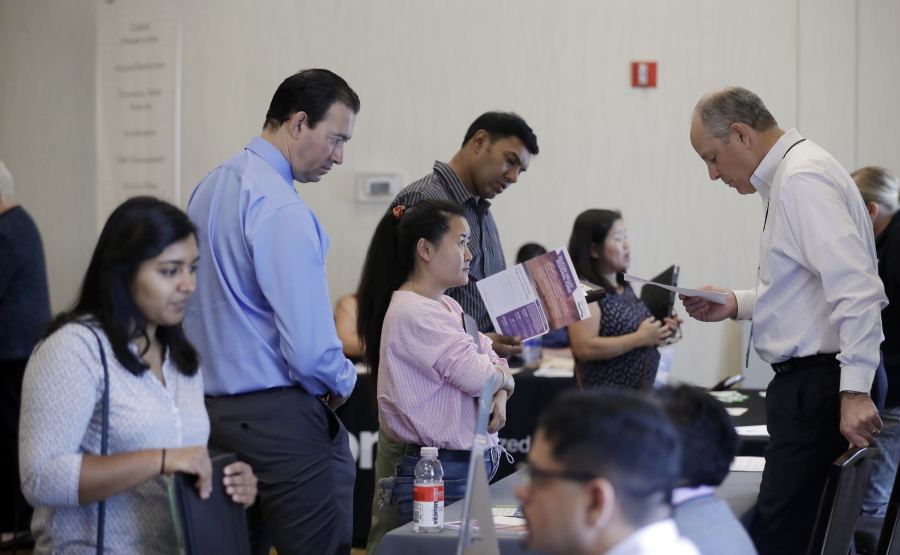WASHINGTON — A pullback in U.S. hiring last month resulting from Hurricanes Harvey and Irma will likely prove short-lived, with a resilient job market pointing to gains in the coming months.
The unemployment rate fell to a fresh 16-year low of 4.2 percent, from 4.4 percent, the Labor Department said Friday in its September jobs report. The proportion of Americans with jobs rose to a nearly nine-year high. And even long-dormant wage growth showed signs of picking up.
The economy lost 33,000 jobs last month — the first monthly loss in nearly seven years — as the hurricanes closed thousands of businesses in Texas, Florida and other parts of the Southeast. Yet hiring is widely expected to rebound in coming months as companies reopen and bring back workers and construction firms ramp up repair and renovation work.
Previous natural disasters, such as Hurricane Katrina in 2005, also inflicted short-term job losses that were followed by intensified hiring.
“The labor market remains in good shape,” said Gus Faucher, chief economist at PNC Financial. “The job losses were due to disruptions from hurricanes, not underlying weakness in the economy.”
Outside of hurricane-hit areas, many Americans found work. The number of people describing themselves as unemployed fell to 6.8 million, the fewest since March 2007, before the Great Recession began.
That sign of health makes it appear all but certain that the Federal Reserve will raise its benchmark short-term interest rate in December. According to data from the CME Group, investors now foresee an 88 percent chance of a Fed rate hike then.
Fed Chair Janet Yellen has said she expects pay raises to accelerate as unemployment declines. That, in turn, might lift inflation closer to the Fed’s annual 2 percent target level if companies raised prices to pay for higher salaries.
Last month’s drop was driven by huge losses in restaurants and bars, which accounted for 105,000 fewer jobs, a sign of the damage to Florida’s tourism industry. Overall, roughly 1.5 million people were unable to work last month because of the weather, the government said, the most in 20 years.
Hourly workers who couldn’t work because of the storms last month and missed a paycheck would have been counted as not working in the government’s survey of businesses, thereby lowering September’s job total. That’s true even if those employees returned to work after the storm passed or will return.
The unemployment rate fell because it is calculated with a separate survey of households. That survey counted people as employed even if they were temporarily out of work because of the storms. In fact, the proportion of adults who have jobs rose to 60.4 percent, the highest since January 2009.
That’s a sign that the low unemployment rate is pulling more Americans off the sidelines and back into the job market. During the recession and the sluggish recovery that followed, many people gave up searching for work.
Dan Harmon, chief operating officer of Smoothie King, a 900-store chain based near New Orleans, said the storms temporarily closed 66 stores in the Houston area and disrupted the company’s end-of-summer hiring. One store was so damaged it still hasn’t reopened.



